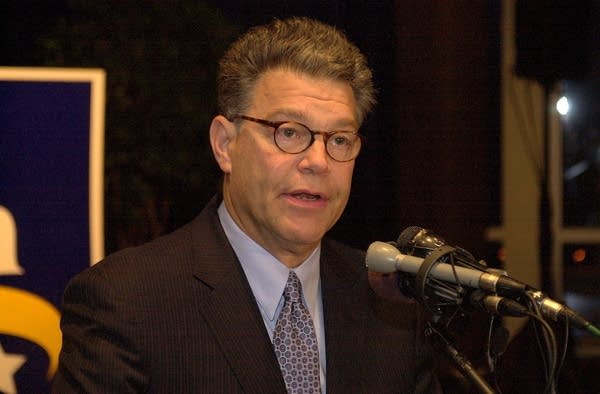Supreme Court to hear absentee ballot arguments Wednesday
Go Deeper.
Create an account or log in to save stories.
Like this?
Thanks for liking this story! We have added it to a list of your favorite stories.

Since the State Canvassing voted Friday to recommend that counties sort rejected absentee ballots and count those that were wrongly disqualified, Coleman campaign attorneys have been busy with Minnesota Supreme Court filings.
They argue that rejected absentee ballots do not belong in a state recount. Their emergency motion seeks a prompt ruling, prohibiting county election officials from opening any more absentee ballots until the high court decides whether those ballots can be part of the recount.
Coleman attorneys argue the wrongly rejected absentee ballots could come into play only in a court challenge of the recount results.

The move comes as the Hennepin County Canvassing Board met late this afternoon to begin talking about absentee ballots.
Turn Up Your Support
MPR News helps you turn down the noise and build shared understanding. Turn up your support for this public resource and keep trusted journalism accessible to all.
Despite its filings, the Coleman campaign says what it's really seeking is for the high court to establish uniform standards for sorting and counting the rejected absentee ballots.
The Franken campaign says such standards already exist under Minnesota election law. They accuse the Coleman side of trying to keep legitimate votes out of the recount.
"Let's just call this what it is," said Franken attorney Mark Elias. "The Coleman campaign went to the highest court in the state, the Supreme Court of Minnesota, to stop the counting and to overrule a unanimous decision of this state's Canvassing Board. This is an extraordinary action that they took."
"The end point that I'm aiming at is a certificate of election that I feel comfortable signing ... having it as absolutely accurate as is humanly possible."
Coleman attorney Fritz Knaak maintains it is uniform sorting and counting standards the campaign is seeking.
"Were we trying to prevent this count from happening at all?" said Knaak. "No, we're not."
Knaak says language in Coleman filings that argues the rejected absentee ballots cannot be considered in the recount is there so the court can consider that route as an alternative to coming up with sorting and counting standards.
"My impression, certainly from what I was hearing from the Franken folks over the weekend, was that they were ... trying to undo this count of these ballots, and that's not the case," said Knaak. "We're about the business of making sure, though, that all similarly situated voters, all similarly situated ballots are counted the same way -- wherever they are in the state."
As the two sides wait for the Supreme Court to weigh in on the absentee ballots, the recount is set to enter its final phase. Tomorrow the Canvassing Board starts a series of meetings to rule on the ballots the campaigns are challenging.
Secretary of State Mark Ritchie, who chairs the Canvassing Board, says he and other board members are planning to meet through Friday to go through the ballots.
It was hoped the board would be in a position to certify the recount results after the ballot challenges are resolved. Ritchie says it will be up to the board to determine what is should do in light of the Supreme Court filings.
For his part, Ritchie says he'll be inclined to hold off from certification until the absentee issues are settled.
"The end point that I'm aiming at is a certificate of election that I feel comfortable signing myself, and asking my colleagues -- Supreme Court justices and judges -- to sign. That means having it as absolutely accurate as is humanly possible," said Ritchie. "Sorting out the question of the wrongly rejected absentee ballots is very important."
The number of challenged ballots has dropped sharply in the past week. The Franken side will go to the board with less than 500. The Coleman campaign says its challenged ballot pile will shrink to less than 1,000.




